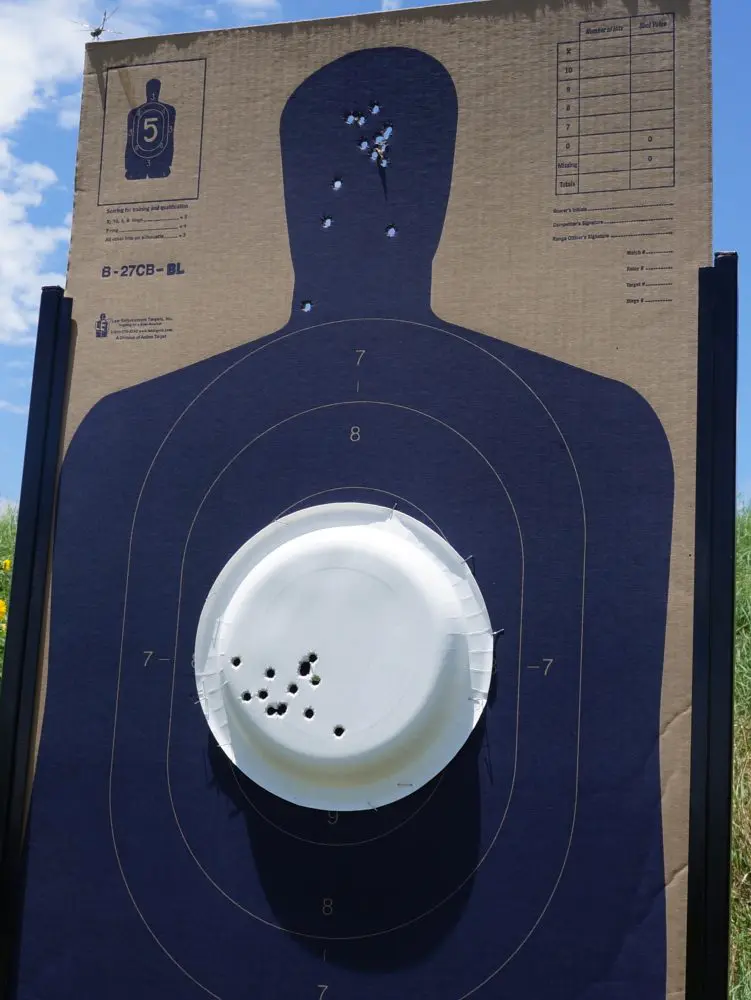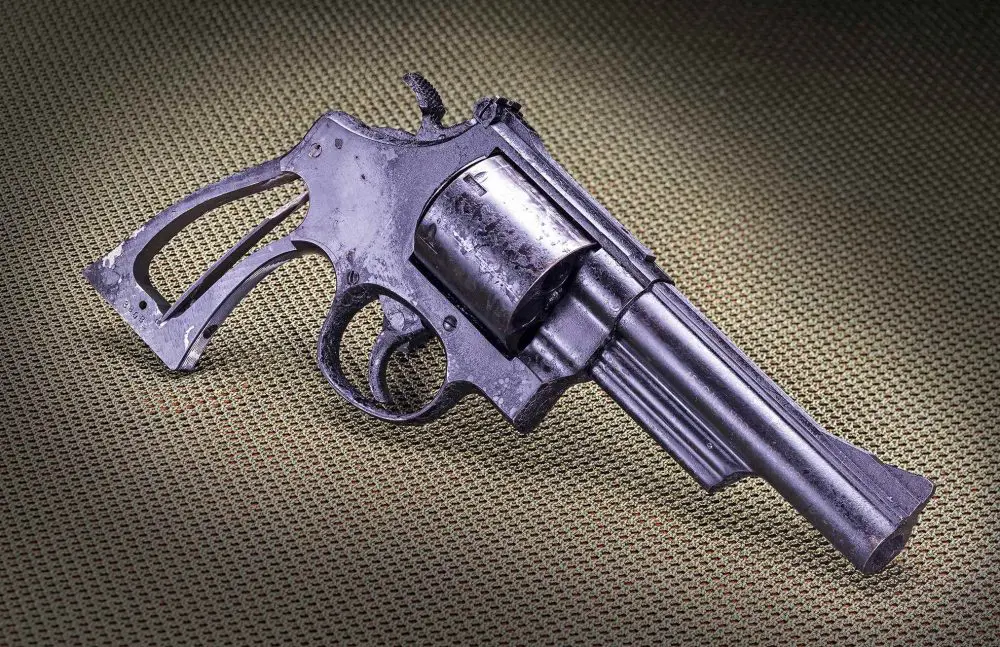Is there a right to rebel against government? “No way!” says Paul Begala.
So who is Begala and why should his opinion count for anything? He was a chief strategist of the 1992 Clinton/Gore presidential campaign and a prominent advisor to Clinton. He later co-hosted CNN’s Crossfire political-debate program. He’s a professor of public policy at DC’s Georgetown University. In short, he’s an ultimate political insider, which is good reason not to listen to him on this subject. Naturally such people are against the concept of rebellion. Even a whiff of rebellion in the air threatens their status—and in extreme cases, their heads. Of course they’re “agin’ it.”
But Begala is also the guy who praised executive orders by chortling, “Stroke of the pen, law of the land. Kinda cool!” Which makes him one of the nation’s strongest advocates for the very type of policy that leads to rebellion. You gotta admit, that gives his anti-rebellion pronouncements a little extra sizzle.
Begala uttered his notorious endorsement of dictatorship while he was a White House official. His boss, Bill Clinton, had been weakened by the Monica Lewinsky scandal. Feeling he couldn’t get enough done by working with Congress, Clinton (like Obama more recently) decided to “issue a series of executive orders to demonstrate that he [could] still be effective.” That’s how the New York Times put it in the 5 July 1998 article that originally quoted Begala’s enthusiastic cheerleading.
His denial of any right to rebellion is more recent. It came at the end of last year’s political season. U.S. Senate candidate Joni Ernst, now Sen. Ernst (she of the famous “castrating hogs” campaign commercial) had said of the right to keep and bear arms, “I do believe in the right to carry, and I believe in the right to defend myself and my family—whether it’s from an intruder or whether it’s from a government, should they decide that my rights are no longer important.”
She said that back in 2012 at an NRA event. But as desperate Democrats staggered and stumbled toward electoral defeat, Begala decided it was time to pull out (as David Codrea noted) the old Saul Alinsky technique of ridicule.
He took to CNN to sneer: “This notion—that the Second Amendment gives citizens the right to fire upon federal officials, or their local police, or sheriffs or even U.S. military personnel is common among right wingers. But it’s one thing to hear, say, goofball Ted Nugent honk off that way. It is another to know that someone with those loopy views is one step away from the United States Senate.”
For the record, I doubt Ernst is so ignorant that she believes the Second Amendment “gives” us anything. It’s Begala’s ignorance that fails to recognize that the Bill of Rights, including the Second Amendment, acknowledges pre-existing rights.
Nevertheless, as evidence of his assertion that there is no right to rebellion, Begala cited the Whiskey Rebellion. In 1794, just three years after ratification of the Bill of Rights, grain farmers and distillers in western Pennsylvania and environs rose up to protest a tax that punished them while favoring the east coast establishment. President George Washington rode out at the head of an army of 13,000 and put down the rebellion. It was an army larger than any he had led during the American Revolution.
Oh. Yeah. The American Revolution. A rebellion against a duly constituted government. A rebellion in which citizens shot and killed soldiers of that government. A rebellion in which George Washington served as the chief military leader. Seems Washington wasn’t exactly 100% opposed to rebellion after all.
But once you’ve become an insider, other people’s rebellions are quite a different thing. You can also argue that the then shiny-new federal government was the best in the world and didn’t deserve to be forcibly opposed, but that’s another question.
The Whiskey Rebellion wasn’t the only revolt in those first years of the Republic. Shays’ Rebellion of 1786-7, in Massachusetts, was again an uprising by farmers (many of them former Continental Army soldiers).
This time their chief target was state government. In the depression following the Revolution, these farmers were being driven into bankruptcy and foreclosure. They cried for reform and debt relief. Other states had responded to their citizens’ pleas. But the legislature in Boston, which the farmers viewed as being both corrupt and in the hands of an eastern establishment of commercial interests (notice a pattern here?) stonewalled.
As with the Whiskey Rebellion, the farmers had barely made the first gestures toward full-blown rebellion when they were slammed by an army—this time state forces numbering about 5,000. Once again, some people who had been key leaders of the American Revolution reacted with fury against someone else’s rebellion.
Samuel Adams, chief propagandist for revolution and the probable organizer of the Boston Tea Party, demanded death for all the Shays rebels. Ben Franklin congratulated Massachusetts Governor James Bowdoin for so decisively protecting state government from the “mad attempts to overthrow it.”
Ironically, though the Shays rebels were routed, so was Gov. Bowdoin. In 1788 he was booted from office in a landslide. Incoming Gov. John Hancock set about pardoning the remaining rebel leaders and instituting many of the reforms they’d asked for. So in a sense, the rebels won.
Nevertheless, these two swift, firm military responses to revolts did establish precedents. Since 1794 there have been few attempts to oppose increasingly strong U.S. governments by force of arms. The War Between the States was the one huge exception—and we all know what ultimately happened to those rebels.
(Worth noting: a major underlying issue in that rebellion was also an agrarian region trying to get out from under a tariff that favored the political-industrial establishment of the northeast. Oh, the patterns!)
Begala is using selective memory. But as a practical matter, he’s on the side that has the biggest guns—and that’s always a comfortable place for a power broker to be.
Begala also picked at Ernst’s stated justification for potentially using arms against government (“should they decide that my rights are no longer important”). “Which rights violations justify armed resistance?” he wanted to know. “How about segregation? If ever American citizens were oppressed by their government, it was African-Americans under Jim Crow. Thank God we had Dr. King and not Ms. Ernst leading the civil rights movement.”
But again, Begala’s argument is as ignorant as it is selective. Although segregation was an outrage against individual rights, by the time of the civil-rights movement, the old Jim Crow system was already starting to break down. For good or ill, the federal government—and the conscience of the nation—rushed to the side of the protestors.
Beyond that, Begala fails to note that those non-violent protestors were, in fact, armed to the teeth and guarded by armies of sympathizers, also well armed. They had adopted non-violence as a strategy—and a smart one, too, because their nationally broadcast vulnerability highlighted the barbarity of their oppressors.
But arms were so important (albeit unseen) that civil-rights worker Charles E. Cobb, who was there, eventually wrote a book called This Nonviolent Stuff’ll Get You Killed (a quote from King). Its subtitle: How Guns Made the Civil Rights Movement Possible.
Had the civil-rights movement not won in the courts, in Congress, and in the public mind, there’s no doubt that groups like the Deacons of Defense, the Student Nonviolent Coordinating Committee, the Congress of Racial Equality, and others would have eventually protected themselves against any threat from any source, including government.
Is there a right to rebellion or not? A cynic might say there is until the moment your side has won, after which all rebellion becomes treason. But ultimately it doesn’t matter whether rebellion is a right or is always and everywhere a wrong. Rebellions will swell when abused people can’t get redress from their rulers. Most will be nonviolent.
You could argue that large parts of the western expansion in the U.S. were quiet rebellions. Some whiskey rebels fled deeper into the hills and became moonshiners, the bane of federal “revenooers” into the 20th century. People wanting to live under their own rules moved away from civilization and established new communities.
But right or wrong, rebellions will rise. And that’s a truth that ought, by rights, to give the Begalas of the world a few sleepless nights.






